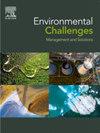农产品零浪费增值:以康普茶混合发酵为例
Q2 Environmental Science
引用次数: 0
摘要
园艺作物种植和加工的扩大,加上处理技术和基础设施的不足,最终导致水果和蔬菜废物的大量积累。这一现象在环境问题、食品安全和全球人口增长的范围内提出了挑战。尽管如此,这种废物含有多种生物化合物和材料,从而在循环经济框架内提供了价值增值的潜力。本综述深入探讨了各种潜在的水果和蔬菜废物增值方法,从混合发酵工艺生产康普茶作为一种多功能和经济上可行的生物转化有机物质的方法开始。本文探讨了发酵过程中产生的细菌纤维素和饮料生产后收集的植物残留物的后续增值方法。在这个过程中,我们解决了在水果和蔬菜废物管理中实现零废物的重要任务。审查还强调,这种做法的成功需要建立跨部门的伙伴关系,使一个部门能够利用另一个部门产生的废物。本文章由计算机程序翻译,如有差异,请以英文原文为准。
Zero-waste valorization of agricultural products: the model case of mixed fermentation in kombucha
The augmented cultivation and processing of horticultural crops, coupled with insufficient handling techniques and infrastructure, have culminated in a massive accumulation of fruit and vegetable waste. This phenomenon presents challenges in the scope of environmental concerns, food safety, and the increasing global population. Nonetheless, this waste holds diverse biological compounds and materials, thereby offering potential for valorization within the Circular Economy framework. This review delves into various potential valorization methodologies of fruit and vegetable waste, starting with the production of kombucha by mixed fermentation processes as a versatile and economically viable means of biotransforming organic matter. The review explores subsequent valorization methods of the bacterial cellulose produced during fermentation and the plant remains collected after the production of the drink. Along the process, we tackle the important task of achieving zero-waste in fruit and vegetable waste management. The review also highlights that succeeding in this practice requires the establishment of cross-sector partnerships enabling one sector to take advantage of the waste generated by another.
求助全文
通过发布文献求助,成功后即可免费获取论文全文。
去求助
来源期刊

Environmental Challenges
Environmental Science-Environmental Engineering
CiteScore
8.00
自引率
0.00%
发文量
249
审稿时长
8 weeks
 求助内容:
求助内容: 应助结果提醒方式:
应助结果提醒方式:


